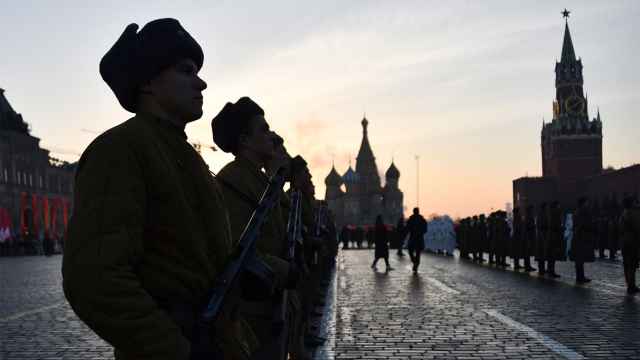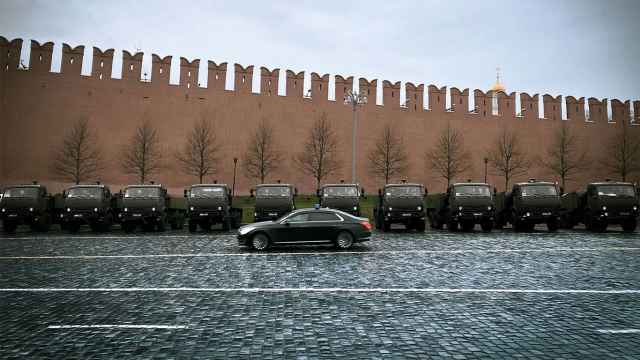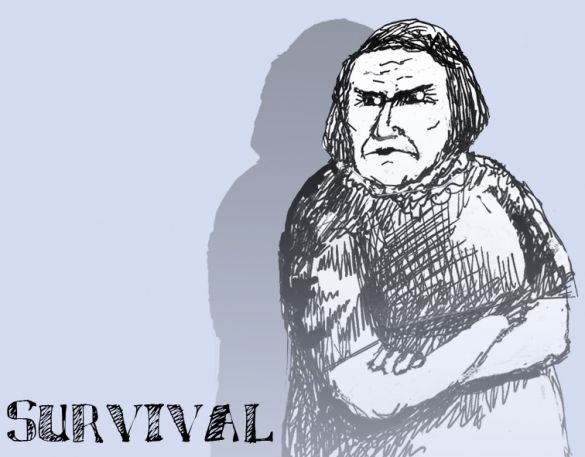
"I must get to the head of the line
or my family and I will starve."
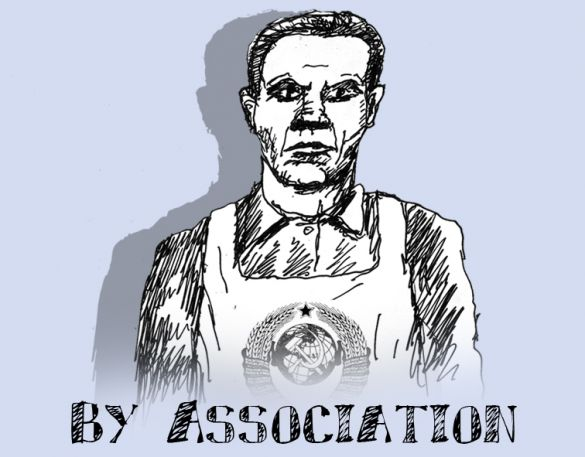
"I am valuable because
I am a Soviet citizen!"

"Don't you know who I am?"
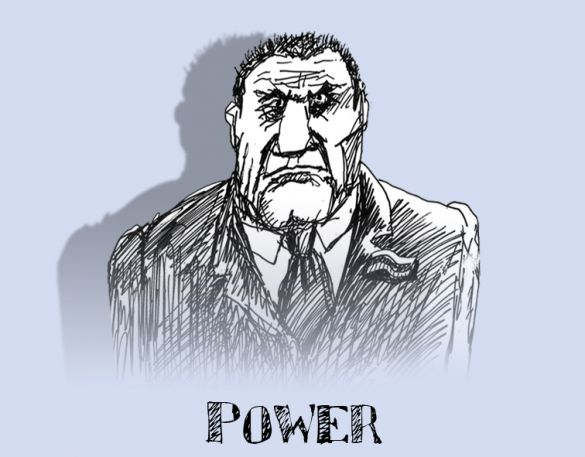
"I have the right to do what I want to do,
when I want to do it."
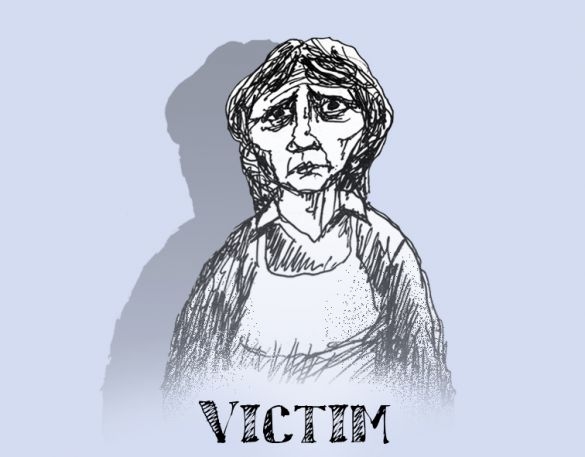
"I deserve special treatment because
of all the pain I experienced."
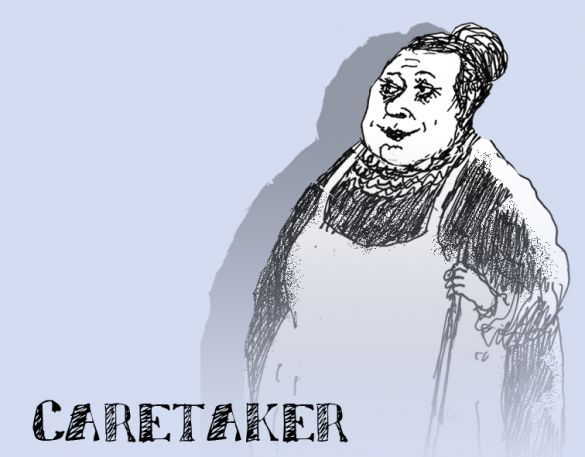
"I do so much for others and I really
know what is best for them."
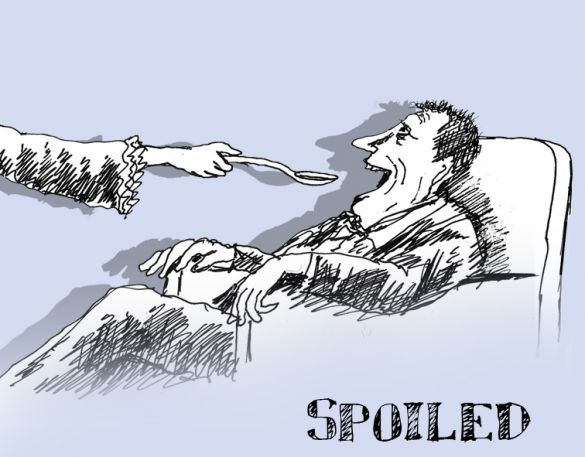
"But, I am special!"
His father was an alcoholic who brutalized him. While his mother smothered him with affection, she also beat him. As a small, sickly child with a damaged arm, he was bullied regularly at school.
But he was highly intelligent and had an amazing memory. He became adept at deceit and manipulation and also learned how to charm. His relentless willpower drove him to believe he could and would become a leader, no matter the cost. Hostile to authority, he left school to become a professional revolutionary — and eventually become known to the world as Josef Stalin.
Expecting and needing to be admired, Stalin was a stubborn and vain man who believed he was infallible. An egotistical despot with an intense desire to dominate and terrorize, he ruled by fear and viewed mistakes or accidents within the Soviet system as personal treacheries often punishable by death. He enjoyed revenge with ruthless ferocity, even against family and friends. He was willing to sacrifice the lives of millions of innocents to obtain his objectives.
Stalin was the quintessential narcissist.
The word "narcissist" is often heard in today's culture to describe a political personality, a media star, or perhaps even a work colleague or family member. As in the case of Stalin, narcissism can be extremely destructive when the narcissist is a person in power in the government or the workplace.
A narcissist is formed in many ways. Some like Stalin faced abuse and decided never to be the victim again but instead became the person in power. Exceptional intelligence and willpower also play a role. People with outstanding talents and abilities, or born into families of prominence or wealth, can become idolized by others and placed upon pedestals where they feel entitled to remain.
Fortunately, most narcissists are not as extreme as Stalin. But their behaviors still create major difficulties for anyone under their authority. The distinguishing characteristics of a narcissistic include:
• Entitlement. They expect special favors without assuming reciprocal responsibilities.
• Disregard for the personal integrity and rights of others. They have no boundaries or respect for anyone but themselves. Their needs always take priority.
• Lack of empathy and compassion. They are unable to recognize the distress of others, especially when they have caused it.
• Self-centeredness. They see every interaction as it affects themselves, "The world revolves around me."
• Superiority and grandiosity; arrogant and egotistical.
• Domination. They have a controlling, demanding attitude.
• Exclusivity. They feel rules do not apply to them, "I am above the law."
• Hypersensitivity. They respond excessively to any slights or imagined insults.
• Neediness. They harbor a vast emptiness inside because of a lack of childhood love and nurturing.
While the term narcissism relates to "self-love," most narcissists actually have an exceedingly poor concept of self-worth and can only feel "up" if everyone else is "down." To treat another as an equal or to concede on any point is tantamount to failure. It is all or nothing. Many narcissists feel deeply resentful and "imposed upon" if required to give of themselves to help another person, even in times of illness or crisis.
A characteristic often associated with narcissism is rebellion against authority. This attitude keeps them at odds with parents, teachers, employers, spouses and the government. They resent being asked to do what is normally required, feeling that they are "above all that" — even refusing to adhere to being punctual for personal and professional engagements. They do not want to lose or feel that they are "giving in." They often do not keep agreements and regard consistency and predictability as demeaning traits.
Might you be a narcissist, or do you suspect that someone you work with in business or the government is one? Narcissism is not specific to Russia, and it comes in many types. Here are the main kinds of narcissists, but keep in mind that a person can possess the properties of more than one type of narcissism.
The Survival Narcissist: In addition to the usual factors that create a narcissist, a survival narcissist is formed by being deprived of food, clothing and shelter, and having his or her personal safety and security violated. Under these circumstances, the person enters a "survival-only mode" and becomes self-centered and driven simply to stay alive. They push and shove to get to the head of the line in order to survive. If they do not do so, they and their families will starve and their children will not have shoes. However, if and when the deprivation or safety crisis ceases, these aggressive actions often continue because they have become conditioned, long-term habits.
We see the survival narcissist every day in Russia. Even though people may not be physically pushing and shoving to buy bread anymore, the underlying "survival-only mode" has not changed.
Narcissism by Association: This dependency usually develops when a person has been told and shown that they have no worth as a person and only exist to support a larger entity or system such as a family, government, ethnic group, political party or religious organization. While the entity or system may have many good qualities, it also tends to have many narcissistic traits by stating it is the best in the world, exploiting others for its own purposes and showing domineering and controlling characteristics. By dwelling within such an entity or system, a person absorbs those characteristics and attitudes toward themselves and others. Unfortunately, if the larger system collapses, then the people whose personal value depended upon their association with it often find themselves in a "worthless wasteland."
This descriptor was given by one of my Russian students trying to explain how devastating it was to so many Russians when the Soviet Union collapsed because their personal pride and worth was inextricably woven into the Soviet system.
The Entitled Narcissist: This narcissist has lived a life of privilege and expects to be treated as someone special. Perhaps he or she came from a family of the Party elite or a present-day family of wealth or prominence. The entitled narcissist has never known what it is like not to be "on top," and therefore has no regard or empathy for those who are deemed to be less worthy. Despite coming from a privileged lifestyle, this child often has been raised by a succession of nannies and other caretakers and has no loving connection with his or her parents. The child learns that he or she is above others and entitled to special privileges.
In the recent past, an example of entitlement invaded the streets of Moscow daily with the capricious, self-serving use of flashing blue lights on the cars of government officials, businessmen, celebrities and others who have the funds to pay for the right to do as they please.
The Power Narcissist: Unlike the entitled narcissist who has always had everything, the power narcissist usually comes from a deprived childhood where he or she had little or nothing. Consequently, those individuals feel they deserve to have everything as adults to make up for what they lost in childhood. He or she will charm, claw, climb, manipulate, and ruthlessly step on and over family and friends to accomplish his or her goals of power, influence and control — and feel fully justified in doing so.
We often see this destructive pattern in high-level business and politics — especially in Russia. I know many powerful men who are successful financially and career-wise, but their personal lives are train wrecks. They have consumed so many loved ones, friends and colleagues in their ceaseless drive for power that when they finally reach the top, the only people left around them are "leaches" or rivals waiting for them to fall and to eagerly take their place. A power narcissist's insatiable hunger for power becomes addictive, and he or she often also acquires other destructive addictions — sex, gambling, drugs or alcohol. As Lord Acton stated, "Absolute power corrupts absolutely."
The Victim Narcissist: This person has genuinely been traumatized, abused or neglected as a child and also perhaps as an adult. He or she has a right to feel victimized. However, when his or her identity becomes entwined with "I am a victim and thus deserve special treatment," then this entitlement moves toward narcissism. Victim narcissists feel (even after they become adults) that others should be responsible for their well-being. They resist becoming healthy, mature women and men and justify their actions by their victim status.
Because alcoholism and domestic violence are so prevalent here in Russia, victim narcissism is unfortunately passed down through many generations.
The Caretaker Narcissist: While many narcissists are obvious, others are not. Sometimes narcissistic traits are difficult to distinguish because they can be hidden beneath an exterior that shows a loving, caring and giving person who does not appear to be self-centered.
I have had numerous students here in Russia who cared excessively for their families, or who were in educational or helping professions and spent their lives giving to other people. They always felt they were not appreciated or valued for their work and usually had conflicted relationships. I found that almost all came from homes of emotional deprivation and neglect. Their parents gave them little love, rarely spoke kindly to them, and often did not protect them from abuse. Or they were those children who were deposited with relatives, put in government schools or left alone while parents worked long hours for the Soviet system. These children are left with huge emotional holes that were supposed to be filled by their mothers and fathers, and when that did not happen, they spent the rest of their lives trying to fill those holes by making others dependent upon them with their extreme caretaking.
The Spoiled Narcissist: While some children suffer from neglect, others have overly solicitous parents. The parents (often having poor self-worth and a background of deprivation) endeavor to give their children everything they never had. If their child happens to have a special talent or ability — especially in academics, sports, music or acting — these parents will attempt to gain their own worth through the child's success.
We often see parents who grew up in Soviet times and now are overindulging their children and grandchildren. Unfortunately, a child who is pampered and doted upon excessively can become a spoiled narcissist. As an adult, the spoiled narcissist will seek a spouse to continue to care for him or her in the same fashion, and relationships will never be satisfactory.
Narcissism is not always an inevitable reflection of a person's childhood. Some people may have experienced many of the factors that are common in the formation of a narcissist but are able to become loving, caring people. The major delineating elements between these people and narcissists are that they had good role models who offered balanced love, care, and respect for others and themselves, plus a healthy concept of a Higher Power in their lives. They also may have been exposed to other cultures and have gained respect for those who differ from their own beliefs.
Is change possible? Unfortunately, many narcissists — Stalin included — feel no need to change. They like being set apart and above the pack. Their arrogance assures them that they are fully entitled to do exactly what they want to do.
To have a healthy, mutually rewarding relationship with such a person is impossible unless the narcissist is truly willing to change. As long as the narcissist continues to view himself as the center of the world, there is no room for anyone else.
Marilyn Murray is an educator specializing in the treatment of trauma, abuse and deprivation, with more than 2,000 people attending her classes in Russia over the past 10 years. Her book, "The Murray Method," is available in English and Russian.



